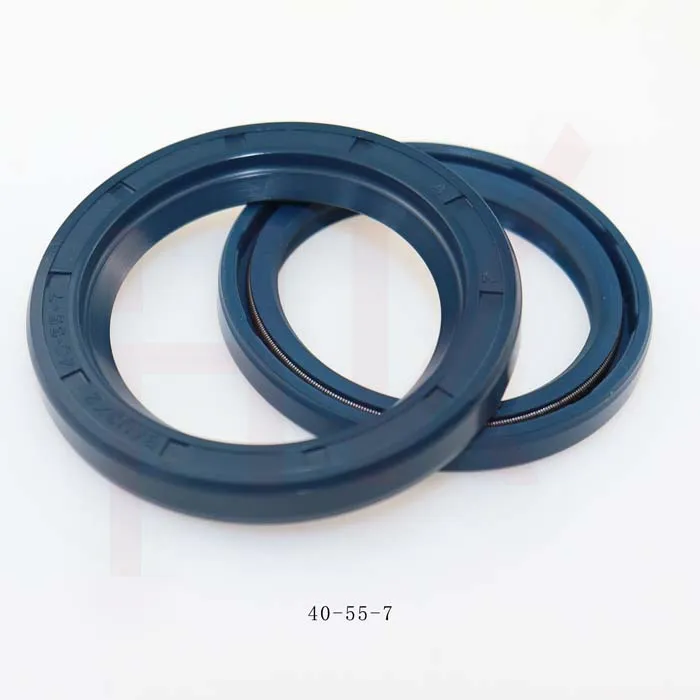Nov . 21, 2024 14:25 Back to list
high temperature shaft seals
High Temperature Shaft Seals Ensuring Performance and Reliability in Extreme Conditions
In various industrial applications, particularly those involving rotating machinery, shaft seals play a critical role in maintaining operational efficiency and equipment longevity. Among the diverse array of seal types, high-temperature shaft seals are specifically designed to function in extreme thermal conditions. These seals are essential in applications ranging from aerospace to automotive and heavy machinery, where temperatures can exceed standard operational limits.
Understanding High-Temperature Shaft Seals
High-temperature shaft seals are engineered to withstand elevated temperatures while effectively preventing fluid leakage and contamination ingress. These seals are typically composed of materials that can endure heat, such as fluoropolymers, silicone, and specialized elastomers. The choice of material is crucial as it determines the seal’s performance, durability, and compatibility with the lubricants or fluids involved in the application.
When selecting a high-temperature seal, it is essential to consider factors such as the maximum operating temperature, the type of lubricant or fluid being sealed, and the presence of environmental contaminants
. A thorough understanding of these variables ensures optimal seal selection for specific applications.Applications of High-Temperature Shaft Seals
Industries that heavily rely on high-temperature shaft seals include aerospace, automotive, chemical processing, and oil and gas. For example, in aerospace engineering, components such as jet engines require seals that can operate efficiently in extreme temperatures and pressures. High-temperature shaft seals help maintain the integrity of the engine’s lubrication systems while withstanding thermal cycling and mechanical stresses.
In the automotive sector, high-performance engines and transmissions generate significant heat during operation. To ensure reliability and efficiency, high-temperature shaft seals are utilized to prevent oil and coolant leaks while enduring the harsh conditions presented by modern performance engines.
high temperature shaft seals

In chemical processing, equipment often handles corrosive and high-temperature fluids, necessitating seals that can resist not only thermal degradation but also chemical corrosion. The right high-temperature seal can enhance the performance of pumps, mixers, and compressors while reducing the risk of failures that could lead to costly downtime.
Challenges in High-Temperature Sealing
Despite advancements in material science and engineering, high-temperature sealing presents specific challenges. One notable issue is the thermal degradation of seal materials, which can occur if the temperature exceeds the specified limits for an extended period. This degradation can lead to loss of sealing effectiveness, resulting in leaks that affect operational efficiency and safety.
Additionally, mechanical stress from misalignment, vibration, or improper installation can exacerbate wear on seals. Ensuring proper alignment and employing installation best practices are vital steps in mitigating these risks. Regular maintenance and monitoring of seal performance are also essential to address any potential issues before they lead to significant failures.
Conclusion
High-temperature shaft seals are indispensable components in various critical applications, ensuring reliability and performance in challenging conditions. As industries continue to innovate and push the boundaries of performance, the demand for effective sealing solutions that can withstand extreme temperatures and harsh environments will only increase.
To meet this demand, ongoing research and development in seal materials and designs are crucial. Manufacturers are continually exploring new polymers and composite materials that offer improved thermal stability, chemical resistance, and mechanical reliability. By investing in robust sealing solutions, industries can enhance the performance of their machinery, reduce maintenance costs, and maintain operational safety in high-temperature environments.
In summary, high-temperature shaft seals represent a vital intersection of material science and engineering, playing a pivotal role in the efficiency and reliability of modern machinery across various sectors. By understanding their importance and the challenges they face, industries can make informed decisions that optimize the performance and longevity of their equipment.
-
TCN Oil Seal Metal Ring Reinforcement for Heavy Machinery
NewsJul.25,2025
-
Rotary Lip Seal Spring-Loaded Design for High-Speed Applications
NewsJul.25,2025
-
Hydraulic Cylinder Seals Polyurethane Material for High-Impact Jobs
NewsJul.25,2025
-
High Pressure Oil Seal Polyurethane Coating Wear Resistance
NewsJul.25,2025
-
Dust Proof Seal Double Lip Design for Construction Equipment
NewsJul.25,2025
-
Hub Seal Polyurethane Wear Resistance in Agricultural Vehicles
NewsJul.25,2025
-
The Trans-formative Journey of Wheel Hub Oil Seals
NewsJun.06,2025
Products categories
















